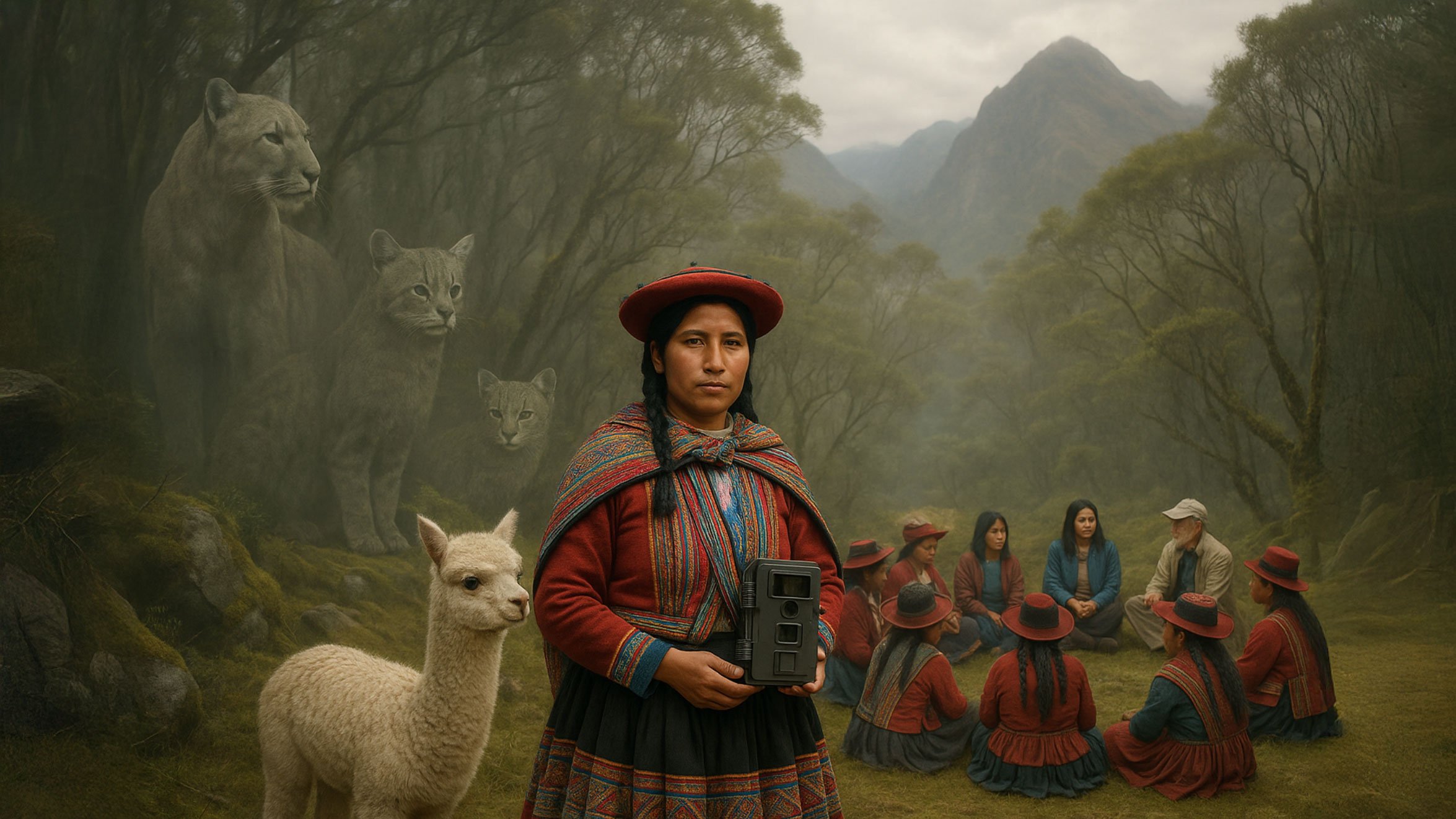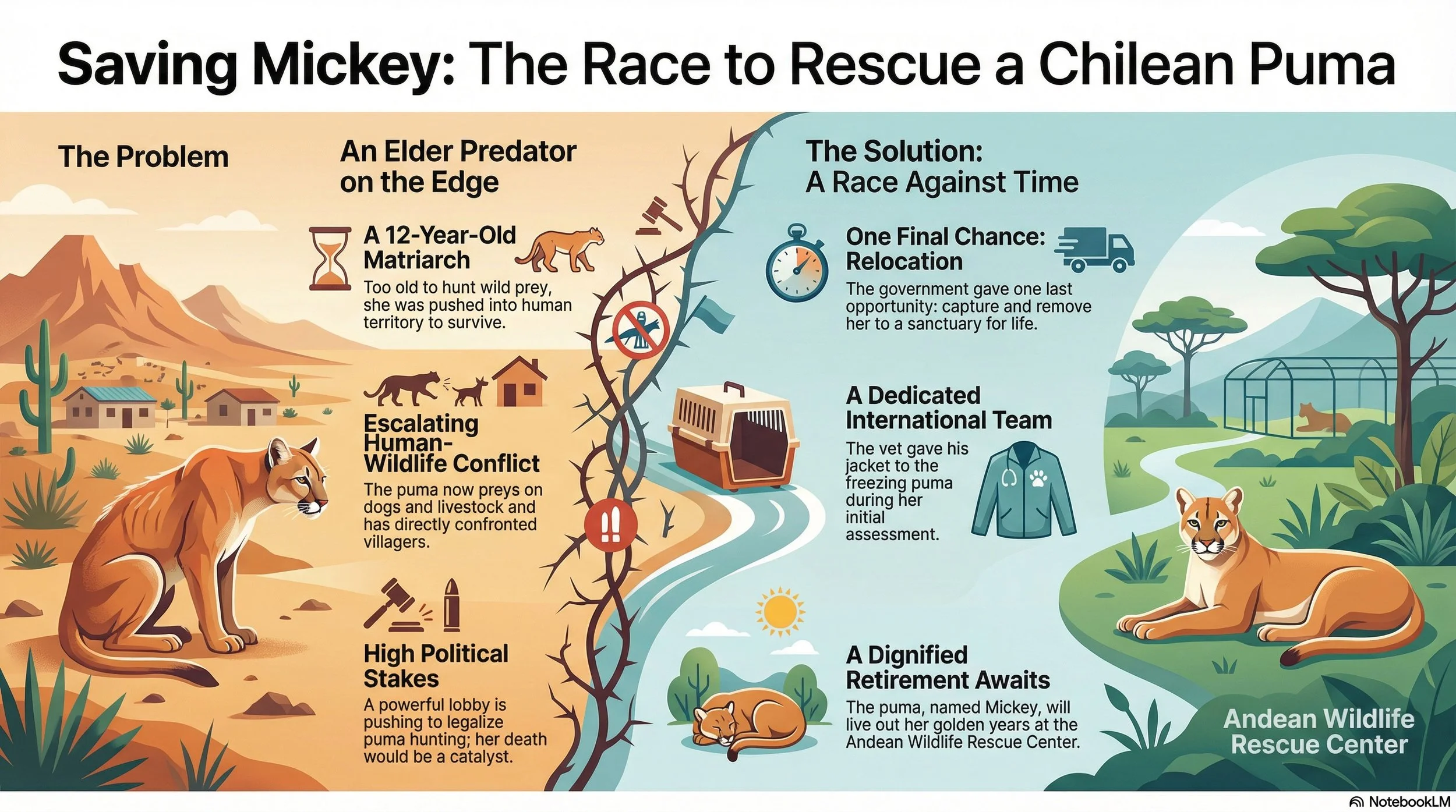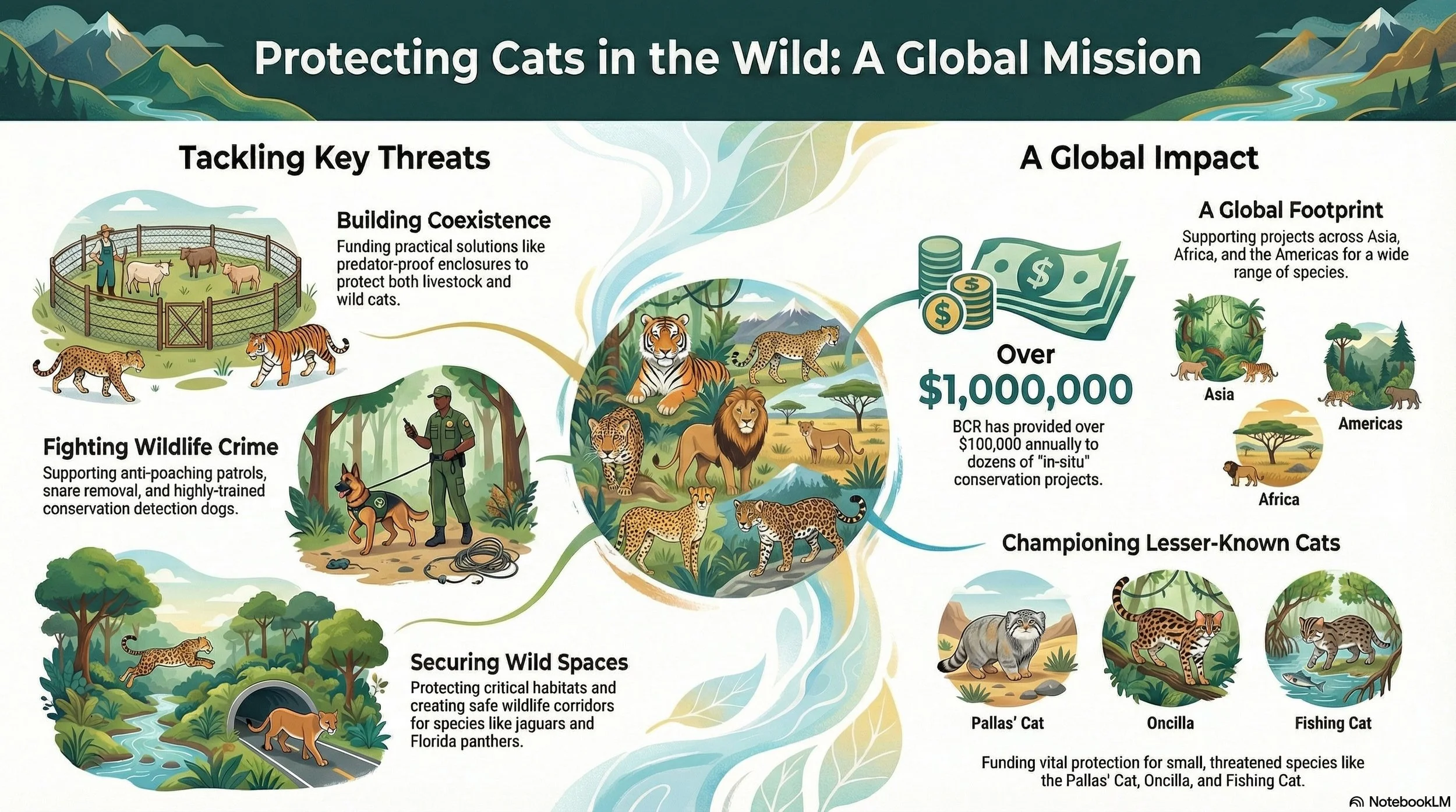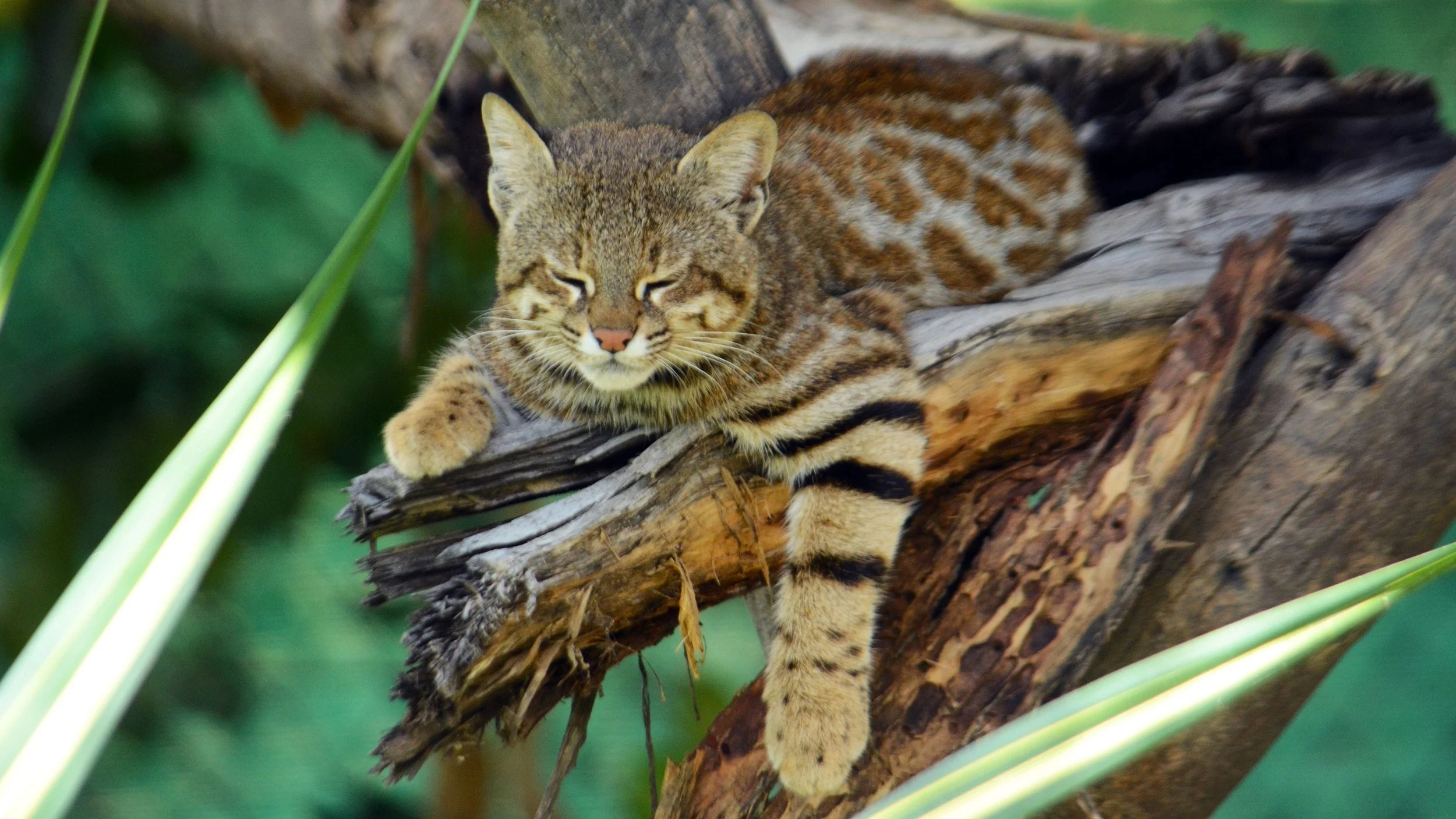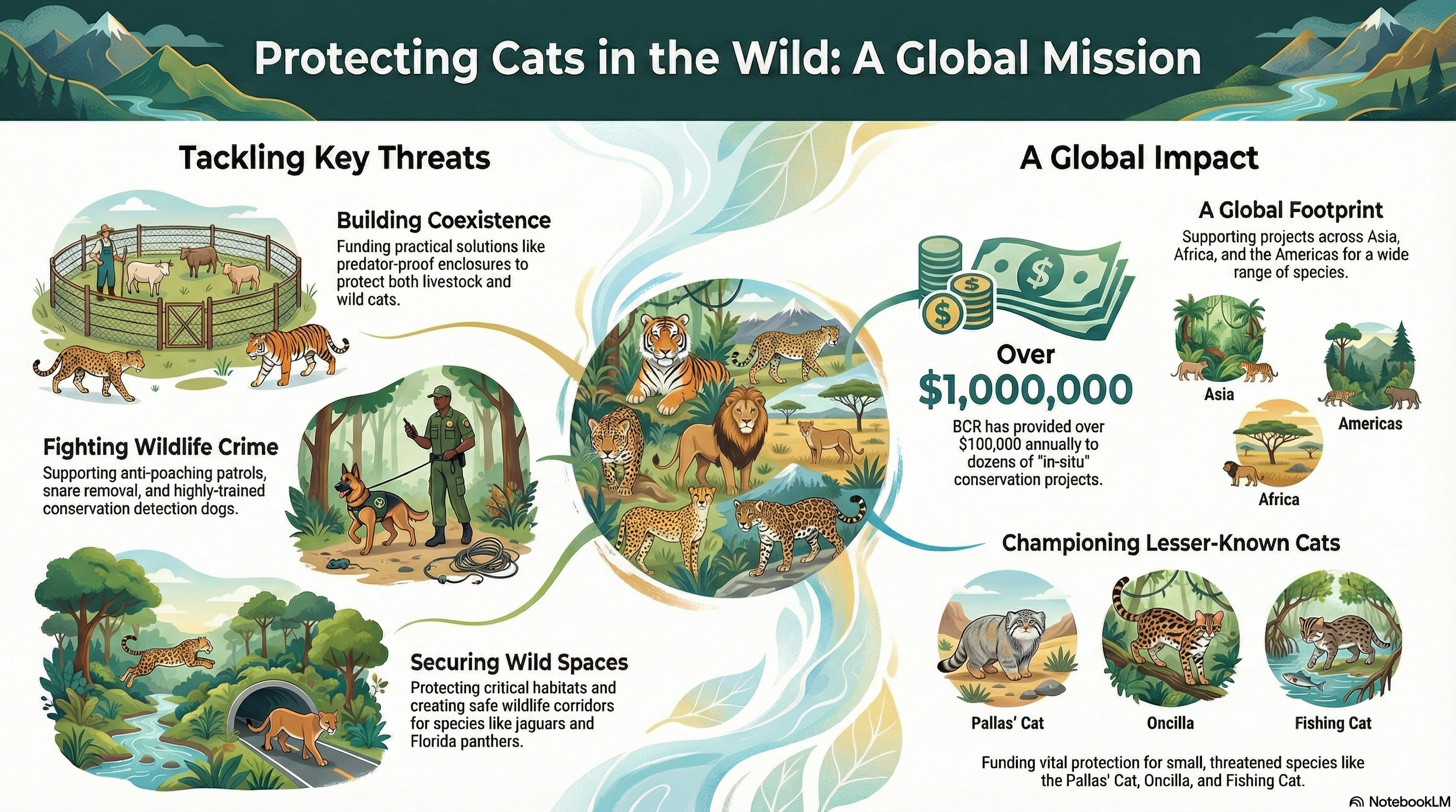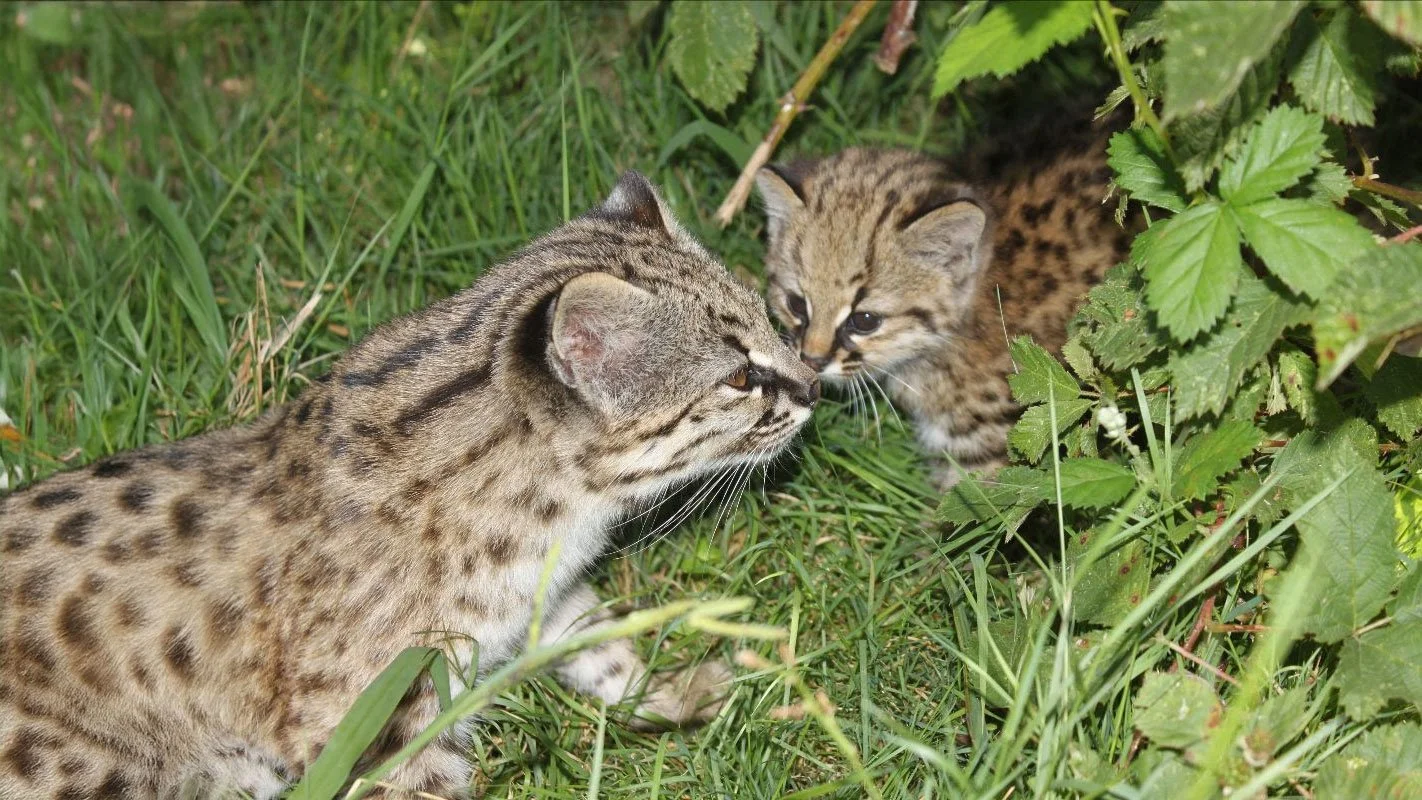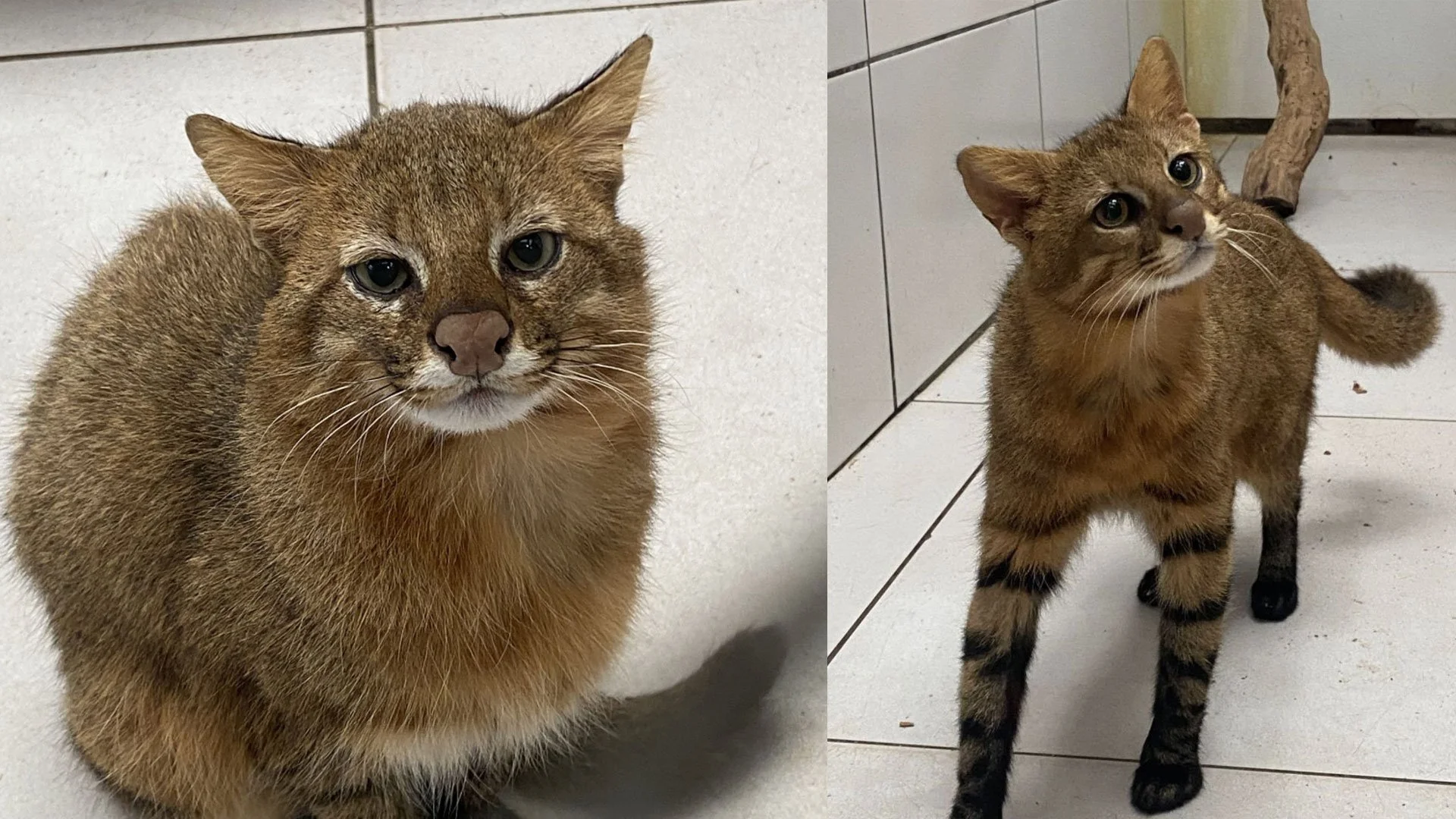From Prey to Protectors: Quechuan Women Redefine Wildcat Conservation in the Peruvian Highlands
High in the Peruvian Andes, where mist wraps ancient peaks and queuña forests once stood as guardians of the ecosystem, a quiet revolution is stirring. It’s not being led by governments or global organizations, but by Quechuan women—mothers, shepherds, and now, wildlife defenders—who are transforming fear into coexistence, loss into leadership.
The spark behind this shift? A partnership of passion and purpose between Quechua biologist Merinia Mendoza Almeida and world-renowned small wildcat expert Dr. Jim Sanderson, with the support for such projects by Big Cat Rescue. Together, they are reshaping how conservation is done—placing knowledge, power, and respect back into the hands of those who have always belonged to the land.
Wild Cats, Wild Conflicts
In the mountain village of Licapa, the balance between people and wildlife has been unraveling. The majestic Andean cat, elusive Peruvian desert cat, and formidable puma have been pushed from their shrinking habitats into closer and more dangerous proximity to human settlements.
The cause? Not the wildcats themselves, but their disappearing prey. With species like vizcachas and deer vanishing due to deforestation and climate change, hungry carnivores have turned to easier targets—alpacas, guinea pigs, and chickens tended by the women of the village. For families already living on the edge, each loss is devastating.
“I thought they were just bad animals,” admits Alicia Ccaico, a local woman who once saw wildcats as enemies. “We only saw the harm they did.”
But everything changed when Merinia came to town.
A Biologist With Deep Roots
Merinia Mendoza Almeida is more than a scientist. She’s Quechua. She understands the cultural heartbeat of her people, and the ecological heartbeat of her homeland. Armed with academic training and ancestral wisdom, Merinia has returned to villages like her own with a mission: to create a new generation of female conservationists who can both protect their families and preserve their forests.
Together with Dr. Jim Sanderson—who has dedicated his life to protecting small wild cats across the globe—they launched Mujeres Quechua por la Conservación, an initiative empowering more than 30 Indigenous women through education, leadership, and hands-on conservation.
What began as cautious meetings over coca tea and shared stories has grown into a movement.
Fortifying More Than Chicken Coops
The women meet monthly to learn about ecosystems, camera trap monitoring, and conflict resolution strategies. They share experiences and brainstorm solutions that honor both their livestock and the predators that roam nearby.
Simple strategies—like reinforcing coops and rotating grazing zones—are yielding profound results. While chickens now rest safer at night, it’s the cultural transformation that’s most remarkable.
By involving women in fieldwork and decision-making, this initiative is breaking generations-old gender barriers. In a region where women’s voices were often silenced, they now echo through forests and town halls alike—with confidence.
“Before, I thought only men could speak for the forest,” said one participant. “Now, I speak for it too.”
The Science of Empowerment
Dr. Sanderson has seen conservation models worldwide—but few have touched him like this one.
“Success in wildlife conservation comes when people living closest to the land become the stewards,” he explains. “These women are redefining what it means to protect nature.”
With the help of camera traps and tracking tools, the women have begun documenting the return of elusive wildcats to their forests—living proof that coexistence is possible.
And through their efforts, they're also protecting water sources, plant diversity, and soil stability—vital lifelines for Peru’s fragile Andean ecosystems.
What Big Cat Rescue Makes Possible
At Big Cat Rescue, we believe in keeping wild cats in the wild, and that means supporting the local heroes on the frontlines. That’s why we’re proud to fund and uplift projects like this—where Indigenous knowledge, scientific innovation, and gender equity intersect to create real change.
The work of Merinia, Jim, and the women of Licapa is more than conservation. It’s reconciliation. It's the healing of ecosystems and of old wounds—between humans and nature, between past and future.
And it’s working.
What You Can Do
You don’t need to live in the Andes to be a part of this story. Here’s how you can help:
Donate to Big Cat Rescue to support grassroots conservation.
Amplify the voices of Indigenous women leaders like Merinia.
Educate others about the need to protect wildcats and their habitats.
The pumas, Andean cats, and desert cats of Peru are not pests. They are ancient spirits of the mountains, woven into the Quechuan identity. Thanks to these brave women, they may once again roam freely—not as threats, but as fellow children of the Earth.
Read more: https://news.mongabay.com/short-article/indigenous-women-in-peru-lead-wildcat-conservation-initiative/
